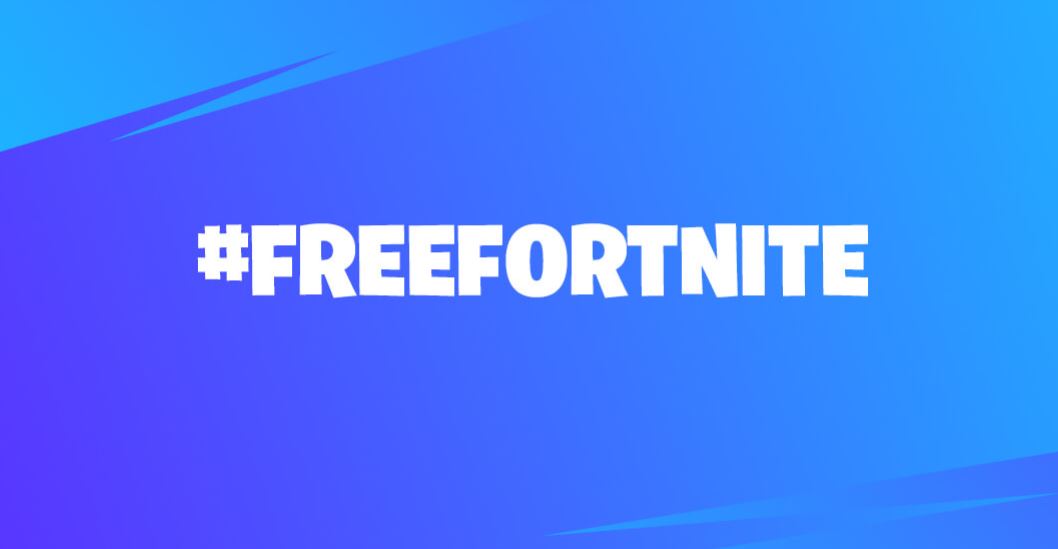Epic Games' Fortnite: A Legal Battle Over In-Game Store Practices

Table of Contents
Epic Games' Business Model and the Apple/Google Dispute
Epic Games' business model revolves around its in-game currency, V-Bucks, used to purchase cosmetics, battle passes, and other in-game items within Fortnite. This in-app purchase system forms a significant part of Epic Games' revenue stream. The core of the legal dispute lies in Epic Games’ disagreement with Apple and Google's app store policies, which mandate a 30% commission fee on all in-app purchases. This revenue sharing model, Epic Games argued, is anti-competitive and stifles innovation.
- Epic Games' Argument: Epic Games contended that the 30% app store fees constitute an anti-competitive practice, creating a monopoly and preventing fair competition among app developers. They argued this fee significantly impacts their profits and limits their ability to offer lower prices to consumers.
- Apple and Google's Counterarguments: Apple and Google countered that the commission fee is necessary to maintain the security and quality of their app stores, covering costs associated with app review, fraud prevention, and customer support. They also highlighted the benefits of their vast reach and marketing capabilities for developers.
- Impact on Developers and Consumers: This dispute has had far-reaching implications. Smaller developers face a significant barrier to entry due to the high commission fees, while consumers may pay higher prices for apps and in-app purchases. The legal battle highlighted the power dynamics between app store operators and developers, raising important questions about fairness and competition.
The Antitrust Arguments and Legal Proceedings
The legal battle between Epic Games and Apple and Google centered around key antitrust arguments. Epic Games alleged that Apple and Google engaged in monopolization and restraint of trade by leveraging their control over the app stores to impose unfair fees. This "antitrust lawsuit" involved extensive legal proceedings, including detailed discovery, witness testimonies, and court hearings.
- Legal Arguments: The legal arguments focused on whether Apple and Google's app store policies violated antitrust laws by restricting competition and preventing developers from offering alternative payment methods. Epic Games presented evidence to support claims of monopolization, while Apple and Google defended their practices as essential for maintaining a secure and reliable app ecosystem.
- Key Evidence: Evidence presented included internal documents, expert testimonies, and market data analyzing app store practices and the impact of the 30% commission fee on developers and consumers.
- Outcomes of Legal Battles: The outcomes of these legal battles have varied across jurisdictions, highlighting the complexity of the antitrust issues involved. While some courts ruled in favor of Apple and Google, others found certain aspects of their practices to be anti-competitive, leading to ongoing appeals and significant legal debate. The "Epic Games vs Apple" and "Epic Games vs Google" cases have set important precedents for the future of app store regulations.
The Impact on the Gaming Industry and Consumers
The legal battle surrounding Fortnite's in-game store has profoundly impacted the gaming industry and its consumers. The dispute brought to light the power imbalance between app store operators and developers, raising concerns about app store policies and the future of in-app purchases.
- Potential Changes in App Store Policies: The legal battle has spurred discussions about potential changes in app store policies, including the possibility of lower commission fees or alternative payment options. This could significantly alter the in-game economy and the profitability of free-to-play games.
- Effect on Pricing and Accessibility: The high commission fees have contributed to higher prices for games and in-app purchases. Changes in app store policies could lead to lower prices and increased accessibility for consumers.
- Long-Term Implications for Digital Distribution: The outcome of these legal battles will have a profound long-term impact on the digital distribution of games and other software. It could lead to the emergence of alternative app stores or new business models for developers.
The Future of In-Game Store Practices
The future of in-game store practices remains uncertain but is likely to be shaped by several factors:
- Predictions for Future Legal Challenges: We can anticipate further legal challenges related to app store policies and in-app purchases as developers seek to navigate the complex regulatory landscape.
- Potential for Alternative App Stores or Distribution Models: The emergence of alternative app stores and distribution models, offering lower commission fees or greater freedom to developers, is a strong possibility.
- The Evolving Landscape of In-App Purchases: The ways in which in-app purchases are structured and offered to consumers will likely continue to evolve in response to legal pressures and consumer preferences.
Conclusion: Epic Games' Fortnite and the Future of In-Game Stores
The legal battle surrounding Epic Games’ Fortnite and its in-game store practices has been a landmark event in the gaming industry, exposing the complexities of antitrust law, app store regulations, and the future of digital distribution. The ramifications extend far beyond Fortnite, influencing the in-app purchase models and pricing strategies for countless other games and applications. The ongoing developments in this legal saga will continue to shape the future of in-game stores and how developers interact with app store platforms. What are your thoughts on the future of in-game store regulations following the Epic Games vs. Apple/Google legal battles?

Featured Posts
-
 Nigel Farage And Nat West Settle De Banking Dispute
May 03, 2025
Nigel Farage And Nat West Settle De Banking Dispute
May 03, 2025 -
 Malta Coast Attack Gaza Freedom Flotilla Under Fire
May 03, 2025
Malta Coast Attack Gaza Freedom Flotilla Under Fire
May 03, 2025 -
 Donald Trumps Misunderstanding Of Ms 13 Tattoos A Calibri Conundrum
May 03, 2025
Donald Trumps Misunderstanding Of Ms 13 Tattoos A Calibri Conundrum
May 03, 2025 -
 Loyle Carner Fatherhood Influences New Music And Glastonbury Set
May 03, 2025
Loyle Carner Fatherhood Influences New Music And Glastonbury Set
May 03, 2025 -
 Tulsa Winter Weather 2024 A Statistical Overview
May 03, 2025
Tulsa Winter Weather 2024 A Statistical Overview
May 03, 2025
Latest Posts
-
 La Douleur Des Victimes Israeliennes Emmanuel Macron Temoigne D Une Profonde Emotion
May 04, 2025
La Douleur Des Victimes Israeliennes Emmanuel Macron Temoigne D Une Profonde Emotion
May 04, 2025 -
 Reaction Emue D Emmanuel Macron Rencontre Poignante Avec Des Victimes De L Armee Israelienne
May 04, 2025
Reaction Emue D Emmanuel Macron Rencontre Poignante Avec Des Victimes De L Armee Israelienne
May 04, 2025 -
 Netanyahu Juge La Politique Palestinienne De Macron Dangereuse
May 04, 2025
Netanyahu Juge La Politique Palestinienne De Macron Dangereuse
May 04, 2025 -
 Emmanuel Macron Face A La Douleur Images Rares D Une Rencontre Emouvante Avec Des Victimes Israeliennes
May 04, 2025
Emmanuel Macron Face A La Douleur Images Rares D Une Rencontre Emouvante Avec Des Victimes Israeliennes
May 04, 2025 -
 Position De Netanyahu Un Etat Palestinien Une Grave Erreur Pour Macron
May 04, 2025
Position De Netanyahu Un Etat Palestinien Une Grave Erreur Pour Macron
May 04, 2025
